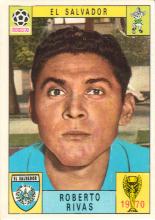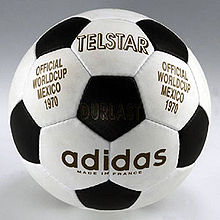1970 – Mexico
I was just 6 months old when England took the real/fake Jules Rimet trophy out to Mexico to defend their crown of 1966. We moan today about the distractions off the pitch for players, but it was no different forty years ago. The squad assembled by Alf Ramsey was regarded as stronger than in 1966, with many players now seen as at their peak.
World Football was still in its infancy in 1970. Only 75 teams entered the qualifying competition, fighting for just 14 places as England (as holders) and Mexico (as hosts) had qualified automatically. The European group consisted of just 29 teams – a far cry from the 53 that went through the qualification for 2010. In the Asia/Oceania group there was Rhodesia (now known as Zimbabwe but at the time excluded from the African group for political reasons) and Israel, now in UEFA, who went on to qualify for their one and only World Cup finals.

Moore was allowed to rejoin the squad on the 25th May as they headed back up to Mexico for the start of the tournament. And what a tournament it turned out to be. 107,000 fans filled the Azteca Stadium in Mexico City for the first game as the hosts could only draw with Russia in a game which was notable for two firsts in international football.
- In the 45th minute Russia’s Victor Serebryanikov became the first substitute to be used in a World Cup game after FIFA introduced “tactical” substitutes.
- Givili Nodiya became the first ever player at the World Cup Finals to receive a yellow card in the first half of the game. The concept of red and yellow cards were suggested by English referee Ken Ashton after he was stuck at some traffic lights in London – strange but true.

So England started their defense against Romania in Guadalajara with six of the 1966 team in the starting eleven and struggled in the oppressive heat to win 1-0 with a Geoff Hurst goal in front of over 50,000. They had been drawn in with tournament favorites Brazil and it would be the game in the same stadium that would go a long way to deciding the overall winners.
Another notable feature of the tournament was the openness of the play. In the opening rounds, there were twelve games with three or more goals in – significantly higher than 4 years previously. But all of that was put to one side in the game of the tournament on the 7th June.
Brazil had been outstanding in their opening game versus Czechoslovakia with Pele on fire. He nearly capped a remarkable game with a goal from 50 yardsin the 4-1 win. This was billed as the game between the greatest attacker and the greatest defender, Bobby Moore, but it was a 59th minute strike from Jarzinho that separated the sides although both were to go through.
With only 16 teams in the tournament it was straight into the Quarter Finals, and England’s defeat meant a rematch against West Germany in the knock out stages. The Germans had been impressive, in a weak group, with striker Gerd Mueller helping himself to hat-tricks in consecutive games against Bulgaria and Peru. England’s plans had been ruined on the morning of the game when Gordon Banks came down with food poisoning, giving Ramsey a selection headache before plumped for Chelsea’s Peter Bonetti.
His selection seemed justified as with 49 minutes gone England were 2-0 to the good and seeming to be cruising. But then the Germans came back into it with two goals, forcing the game to extra time and a possible repeat of 1966. The game was decided by a true striking sensation – not Geoff Hurst this time but that man Mueller as he volleyed home in the 108th minute.
So England were out, and whilst their official song “Back Home” was still riding high in the UK charts they would not be bringing the trophy home. Also on his way home was Jimmy Greaves. Left out of the squad (some believe at the request of FIFA President Sir Stanley Rous after his heartache of 1966) Greaves had taken part in the World Cup Rally – a rally from London to Mexico (quite how you can rally over the thousands of miles of water is another matter) in a Ford Escort where he finished 6th. I cannot see the likes of Scott Parker and Michael Dawson taking part in a 2010 version somehow.

The 21st June 1970 will go down in history as the best World Cup final for many. From the moment Pele scored the 1,000th tournament goal in the 18th minute to Carlos Alberto’s 86th minute wonder goal Brazil totally dominated the spirited Italians. 4-1 reflected the dominance of the Brazilians and they were rewarded with their third World Cup win, and Rous announced that they would be keeping the trophy forever – perhaps he knew where the real one was!
Add Sportslens to your Google News Feed!